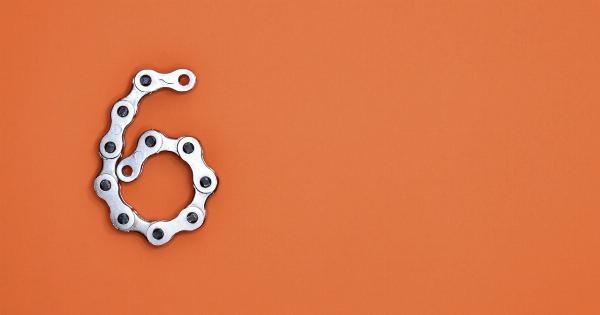Zinc is an essential mineral that plays a vital role in various bodily functions, including immune system support, wound healing, and cellular growth and development.
However, many people may unknowingly suffer from zinc deficiency, which can lead to various health issues. In this article, we will discuss how to tell if you have zinc deficiency and the importance of identifying and addressing this condition.
1. Unexplained Hair Loss
If you notice excessive hair loss without any apparent reason, zinc deficiency might be the culprit. Zinc is crucial for hair growth and plays a vital role in maintaining healthy hair follicles.
Studies have shown that people with zinc deficiency are more likely to experience hair loss.
2. Fragile or Brittle Nails
Zinc is essential for maintaining healthy nails. If your nails become weak, brittle, or easily breakable, it can be a sign of zinc deficiency. Insufficient zinc levels can lead to impaired nail growth and increased susceptibility to breakage.
3. Delayed Wound Healing
If you notice that your wounds take longer than usual to heal, it could indicate a zinc deficiency. Zinc plays a crucial role in collagen synthesis, which is essential for proper wound healing.
Low levels of zinc can impede the healing process and prolong recovery time.
4. Frequent Infections and Weakened Immune System
Zinc is known for its immune-boosting properties. It supports the function of various immune cells and helps the body fight off infections.
If you find yourself frequently falling ill or experiencing prolonged recovery periods, it might be due to a compromised immune system caused by zinc deficiency.
5. Loss of Appetite
One of the early signs of zinc deficiency is a loss of appetite. This can occur because zinc is necessary for the proper functioning of taste buds and the sense of smell.
Without sufficient zinc, these senses can become impaired, leading to a decreased desire for food.
6. Skin Problems
Zinc plays a crucial role in maintaining healthy skin. A zinc deficiency can manifest as various skin issues such as acne, eczema, dry and flaky skin, or slow wound healing.
If you have chronic skin problems that seem to persist regardless of other treatments, zinc deficiency might be a contributing factor.
7. Poor Growth and Development
Zinc is particularly crucial for children and adolescents as it supports proper growth and development. Inadequate zinc intake can lead to stunted growth, delayed sexual maturation, and poor overall development.
If your child is not growing as expected or is experiencing delayed puberty, it is essential to consider the possibility of zinc deficiency.
8. Cognitive and Mood Issues
Zinc plays a role in maintaining optimal brain function. A deficiency in zinc levels can contribute to cognitive impairment, memory problems, difficulty concentrating, and mood disturbances such as depression and anxiety.
If you notice such symptoms, it is worth considering the potential connection to zinc deficiency.
9. Hormonal Imbalances
Zinc is involved in the production and regulation of various hormones in the body. A deficiency in zinc can disrupt hormonal balance, leading to irregular menstrual cycles, decreased fertility, or imbalances in thyroid function.
If you are experiencing unexplained hormonal issues, zinc deficiency could be a possible underlying cause.
10. Poor Night Vision
Zinc is essential for maintaining good vision, especially in low-light conditions. If you have difficulty seeing in dim light, such as while driving at night, it could be a sign of zinc deficiency.
Adequate zinc levels are necessary for the proper functioning of the retina, which is responsible for night vision.
If you experience one or more of these signs and suspect a zinc deficiency, it is crucial to seek medical advice. A healthcare professional can perform various tests to determine your zinc levels accurately.



























